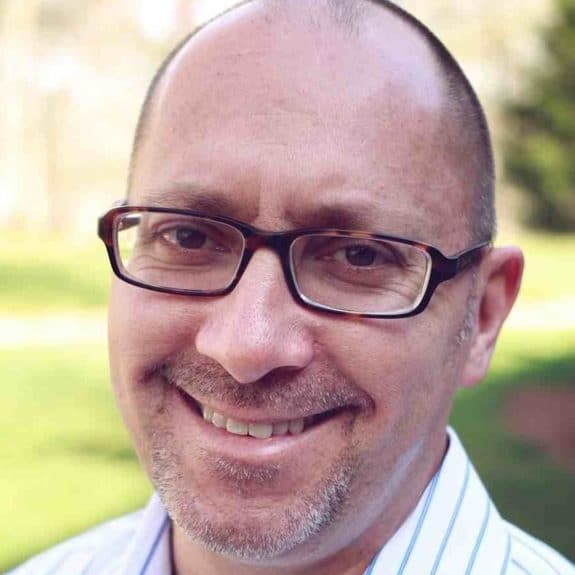It was one of those seminal moments. There I sat on a brick ledge outside the student center at Wichita State University on one of those warm, picturesque spring days you’d like to bottle up and keep. It was the mid-1980s, and a speaker from Brown University named Cliffe Knechtle had jumped headlong into a Mars Hill-style talk on the lawn as passersby stopped to see what was being peddled during the noon hour.
It wasn’t long before a crowd had gathered as Knechtle boldly, intelligently stated why he believed what he believed.
That day—for the first time—I saw in person the power of a well-reasoned, articulate and winsome defense of the Christian faith. I knew what was true and had believed it since the day God overwhelmed me at age 8. But I had never seen it asserted so smartly and confidently and in such a hostile environment.
Knechtle, wearing a button-down oxford with his sleeves rolled up as I recall, paced back and forth, hands engaged, making his case for God and specifically for Christ with skillful rhetoric. I don’t remember many specifics, except that he referred to “Pascal, the great 17th-century mathematician. …” Frankly, I’m not sure I knew Pascal from Pasteur, but Knechtle had me making mental notes when he said that Pascal believed man had within him a “God-shaped vacuum” that gravitated toward worship.
I went back that evening to hear him speak to the campus InterVarsity Christian Fellowship and taped his presentation, replaying it several times. He genuinely seemed to enjoy the fray, not for argument’s sake, but for what seemed to be his end game. Apologetics was merely a means.
All these years later, I have benefited from apologetical study, driven mostly out of fear of not knowing answers to potential questions. In fact, it’s a biblical command to be able to give an answer for your hope, but always kindly, respectfully (1 Peter 3:15).
Up until that point, however, I was where too many Christians stay, content to swim in the warm, shallow waters close to shore.
Make no mistake: Apologetical argumentation has never converted a soul. The Holy Spirit does that through the explicit gospel. In fact, some who enjoy an argument too much can be a stumbling block. The goal isn’t to “win the debate” but to lay out the answers. That’s why the Word tells us to be ready. Amazingly, God desires to use us in his work.
Clearly, apologetical study benefits the believer as much as the unbeliever.
An exposure to the best of Christian apologetics should remove objections that Christianity isn’t rational. If the skeptic is willing to follow the evidence historically and logically, he inevitably will come to a decision: Either he will seek more truth, setting up an encounter with the gospel, or he will opt to “suppress the truth in unrighteousness,” a la Romans 1.
For the believer, though, he cannot defend what he doesn’t know. It seems logical that apologetical study for the Christian would drive biblical literacy and deeper theological understanding. It’s a natural partnership, holding in one hand the foundations of the faith and in the other an ability to defend its validity against all contenders.
What we don’t know should drive us out of fear onto our knees and into greater study to be certified, unashamed workmen for Jesus.
On this last point, ask any parent or grandparent these days about the terror of answering a 7-year-old who wants to know what gay means, or a 9-year-old who wants to know why a doctor would make babies die. They will talk about anything, and at surprisingly young ages. We live in a culture that lets it all hang out.
So for a Christian adult, this is no time for lazy-minded belief. You must not only know what you believe and why you believe it (a first step), but what they believe, why they believe it, and why Jesus towers above the dead gods of this world.
Our faith is wedded to reason. Can you provide a reasonable, kindly delivered answer for your hope?
If not, or if you need a refresher, I recommend the Confident Christianity Conference on Sept. 6-7 at Hillcrest Baptist Church in Cedar Hill, with leading thinkers such as J.P. Moreland of Biola University and our own Barry Creamer of Criswell College tackling the skepticism and relativism of the age. For more on that, see our story in the latest TEXAN Digital.














